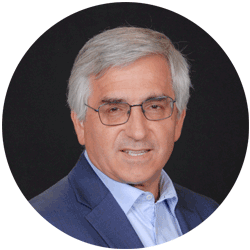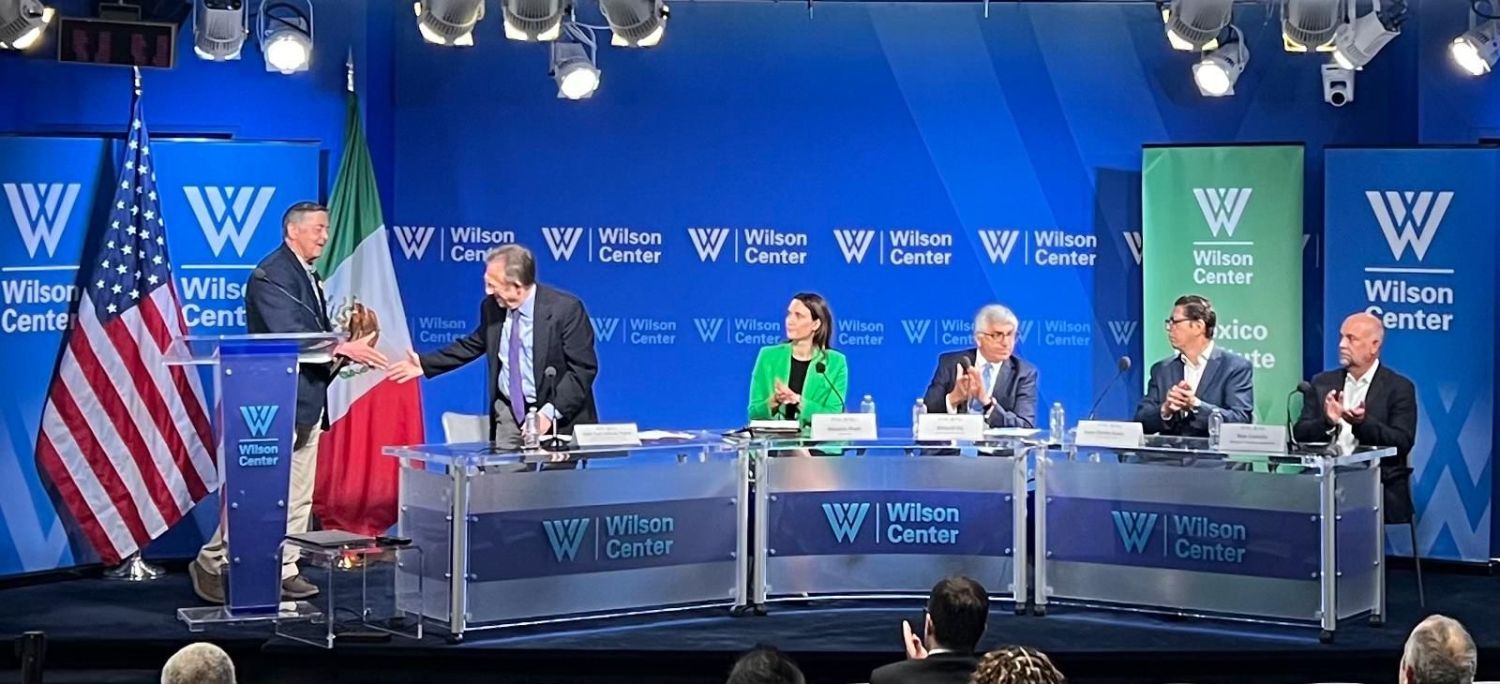|
|
|
|
 Over the past quarter, the Americas has been in the midst of various historic changes –economic, political and environment -that have the potential to shape the region for many years to come. Over the past quarter, the Americas has been in the midst of various historic changes –economic, political and environment -that have the potential to shape the region for many years to come.
Growing tensions between the U.S. and China have prompted a growing number of companies to de-risk and nearshore their manufacturing operations from China closer to home. U.S. concerns about Chinese EV auto makers flooding the U.S. market with lower cost and subsidized electric vehicles -including those made by Chinese manufacturers next door in Mexico- has prompted the Biden Administration to recently impose 100% tariffs on Chinese EVs. On June 2nd, Mexico voters elected Claudia Sheinbaum as their next President giving her a landslide victory that included the election of a super majority from the Morena party to Mexico’s Congress and Senate. With this strong electoral mandate, Mexico’s current President, Manuel López Obrador (AMLO) is now pressing for unprecedented changes to the Mexican Constitution in September before he leaves office that may include the election of all Federally appointed justices (including those for the country’s Supreme Court) by popular vote as well as the elimination of several independent governmental agencies, including the INE that is responsible for free and fair elections. Much is riding on the decisions made by both AMLO and incumbent President Sheinbaum as well as the members of their Morena party in Congress in the months and coming years. Read more |
|
|
|
|
|
IOA Expands Subnational Impact Across the Americas, Convening a Cities Forward Western Hemispheric Dialogue in São Paulo, Brazil |
|
|
|
|
|
On June 17th and 18th, the Institute of the Americas launched the Cities Forward (CF) Hemispheric Dialogue on Climate Adaptation and Resilience in São Paulo, Brazil, in collaboration with ICLEI Local Governments for Sustainability and Resilient Cities Catalyst (RCC), and with the support of the U.S. Department of State (DOS). The event began with a welcoming reception hosted by CAF – the Latin America and Caribbean Development Bank. Speakers included representatives from the DOS and a special recorded message from Ricardo Gomes, Vice Mayor of Porto Alegre, who highlighted the importance of collaboration among city, state, and federal governments to mitigate future climate disasters like the once recently experienced in southern Brazil. The Dialogue, attended by over 80 participants, was strategically timed before the 2024 ICLEI World Congress, serving as a platform for city representatives and experts to share case studies and best practices in addressing climate challenges. Sessions featured insights from experts and academics across the Americas and included themes on: Nature Based Solutions and reforestation; housing risks and ecosystem-based adaptation; critical water infrastructure; and leveraging technology for adaptation. Look at our photo album here! For example, Martin Pérez of WWF-U.S. discussed urban Nature-Based Solutions, focusing on reforestation and conservation efforts in Bogotá, Colombia. Pablo López from CAF highlighted the impact of extreme weather, informal settlements, and urban sprawl on housing vulnerability, advocating for land use planning and Ecosystem-based Adaptation (EbA). Hoboken Mayor Ravinder Bhalla shared his city’s approach to flood resilience, including the construction of a resilience park capable of detaining up to 430,000 gallons of stormwater. The final panel covered data modeling and climate adaptation technologies, with Dr. Virginia Burkett from the U.S. Geological Survey detailing the Latin American & Caribbean Initiative (LACI) and its pilot programs, and Olayinka Lawal, Strategic Partnerships Manager at Google, sharing information about Google’s free Tree Canopy tool. The next Hemispheric Dialogue will be held in Washington, D.C. in 2025, featuring innovative technologies and solutions to climate risks. |
|
|
|
|
|
|
|
The quarter began with the Fifth Annual Madrid Energy Conference hosted in collaboration with our partners IPD Latin America. Over 60 companies from 20 countries, representing both the Americas and Europe, gathered for three days of dynamic discussions on energy transition and investment and our longstanding mission of convening cross-continental collaboration between the Americas and Europe. On May 8, with our partners at the University of Buenos Aires & CEARE, we convened our annual Argentina Energy Roundtable on the occasion of a visit by a delegation from the U.S. Department of Energy (DOE). Formally launched at the Madrid Energy Conference, we finalized a unique white paper in collaboration with CAF – Development Bank of Latin America & the Caribbean. Our paper, Rethinking the Role of Natural Gas To Accelerate Decarbonization in Latin America and the Caribbean, explores the role of natural gas in accelerating the region's transition to a Net Zero economy, with a focus on key National Oil Companies (NOCs). Just prior to the election in Mexico, Jeremy Martin and Duncan Wood from the Wilson Center co-authored an op-ed in the San Diego Union Tribune. We were also pleased to publish, Energizing the Americas: A Blueprint for U.S. Foreign Policy, a collaboration by several writers who offered a case for strategic leadership from the United States to navigate evolving energy trade dynamics and the transition towards cleaner sources across the hemisphere. |
|
Energy Leaders Meet for Dialogue at the 5th Madrid Energy Conference |
|
|
|
|
|
The Fifth Annual Madrid Energy Conference highlighted the need for stable policies, innovative financing, and regional cooperation and underscored Latin America’s critical role particularly against the backdrop of geopolitical shifts and economic uncertainties. U.S. Ambassador to Spain, Julissa Reynoso, kicked off this year’s conference with keynote remarks at our now-famous rooftop opening cocktail. She spotlighted the critical role of European investment in Latin America's energy sector and how U.S. policies, such as the Inflation Reduction Act, are shaping transatlantic energy cooperation. Reynoso reiterated the call for deeper collaboration to ensure energy security and a fair transition to clean energy across Latin America and the Caribbean. |
|
|
|
|
|
Summary Report | Argentina Energy Roundtable: US- Argentina Collaboration, Energy Transition and Natural Gas |
|
|
|
|
|
The opening session with Deputy Assistant Secretary Elizabeth Urbanas and Argentine Deputy Secretary Mariela Beljansky underscored the importance of the US-Argentina relationship. Ideas were exchanged pertaining to subsidy and regulatory reform to cap & trade policy, and, of course, with regards to managing methane, energy transition inputs and solutions such as critical minerals, as well as electric infrastructure and grid reliability. Horacio Daniel Marin, CEO of YPF outlined the “4x4” strategic plan. Marin also emphasized the importance of the Régimen de Incentivo para Grandes Inversiones (RIGI). RIGI will encourage large investment in key sectors of the economy, affording financial and legal stability while explicitly protecting investments. Marin asserted that without RIGI, there would be no LNG project. Download Report » |
|
|
|
Brief | Energizing the Americas: A Blueprint for U.S. Foreign Policy |
|
|
|
In an era defined by geopolitical conflict and climate change vulnerabilities, energy security stands as a critical challenge across Latin America and the Caribbean (LAC). With nations at a pivotal juncture, strategic leadership from the United States is essential to navigate evolving energy trade dynamics and the transition towards cleaner sources. Strategic energy policy cooperation is imperative for US engagement across the Americas. |
|
|
|
By leveraging regional strengths and fostering pragmatic engagement, US institutions can lead transformative initiatives. For instance, optimizing domestic natural gas resources and establishing national carbon federations present promising avenues for addressing challenges and promoting shared prosperity. Download Brief » |
|
|
|
|
|
|
|
Un Día por los Mares (A Day for the Oceans) |
|
|
|
|
|
Along with Scripps Institution of Oceanography and the Centro para la Biodiversidad Marina y la Conservación A.C., we celebrated World Oceans Day with an afternoon of dialogues to catalyze multisectoral discussions on marine conservation. The goal was to inspire different sectors to take actions that bring us closer to the goals established by the 30×30 agenda—agreed to by UN signatory countries in late 2022. We are grateful for the Museo de Historia Natural y Cultura Ambiental in Mexico City for allowing us to use its oceans pavilion for the second edition of the event. You can visit the website here for a summary of the day’s discussions and a photo album. Interviews coming soon! |
|
|
|
Brief | Embracing an Integrated Approach to 30×30 |
|
|
|
In 2022, 196 nations committed to the Kunming-Montreal Global Biodiversity Framework, targeting the protection of 30% of land and oceans by 2030 to combat biodiversity loss and climate change. This ambitious 30x30 goal requires unprecedented collaboration between public, private, and philanthropic sectors to catalyze the needed resources. Key initiatives, such as the UN High Seas Treaty, and the Mangrove Breakthrough, are vital to achieving these targets. As Colombia hosts biodiversity COP16 later this year, nations must leverage these frameworks and innovative financing schemes to drive actionable strategies, ensuring a nature-positive future. Consult this brief, prepared by IOA’s non-resident fellow Carlos Eduardo Correa Escaf in celebration of the World’s Oceans Day, to know more. Download Report » |
|
|
|
|
|
Report | Harnessing New Investments in Industrial Policy to Advance North American Competitiveness |
|
The North American Competitiveness Working Group has released a final report called “Harnessing New Investments in Industrial Policy to Advance North American Competitiveness.” This report references key elements of the Institute’s recent work on nearshoring, including white papers related to U.S. industrial policy and the opportunities for nearshoring in both Canada and Mexico, and it offers recommendations to move North America forward as a more integrated region that can compete internationally in the 21st Century. The Institute of the Americas is a proud participant of the North American Competitiveness Working Group convened by the Center for U.S.-Mexican Studies in collaboration with the George W. Bush Institute, Canada’s Future Borders Coalition, the Mexican Council on Foreign Relations (COMEXI), and the Institute. |
|
|
|
The objective of the working group is to propose policy approaches to ensure the current moment of geopolitical competition strengthens North American economic integration, boosting the productivity, prosperity and competitiveness of the United States, Mexico and Canada. Download Report » |
|
|
|
IOA at the Tenth Annual Building a Competitive US-Mexico Border Conference |
|
 |
|
|
IOA’s President, Richard Kiy, participated as a panelist for a discussion on the future of the USMCA at the Tenth Annual Building a Competitive US-Mexico Border Conference organized by the Wilson Center on June 27 in Washington DC. The conference brought together US and Mexican lawmakers, officials, and private sector representatives for a series of engaging panel discussions aimed at strengthening the competitiveness of the US-Mexico border region. It also addressed crucial cross-border issues, including AI governance, infrastructure, trade, and the impact of upcoming elections on both sides of the border on the future of US-Mexico bilateral relations. IOA’s participation underscores our organization's commitment to fostering productive dialogue and contributing to the ongoing efforts to enhance cooperation and competitiveness along the US-Mexico border. Watch Recording » |
|
|
|
Seizing CaliBaja’s Nearshoring Opportunity report release in partnership with the Burnham Center for Community Advancement |
|
|
|
|
|
On April 25, the IOA and the Burnham Center released a groundbreaking report highlighting opportunities for economic growth and cross-border collaboration in the San Diego-Baja California region. Amid global shifts, 14% of U.S. manufacturers in China consider nearshoring to Mexico due to proximity and USMCA benefits. Effectively addressing infrastructure issues could lead to a 33% increase in Mexico's manufacturing exports to the U.S., from $455 billion to $609 billion within five years, enhancing U.S. supply chain security. Nearly 200 cross-border stakeholders joined us to explore these nearshoring opportunities. |
|
|
|
|
|
IOA hosts California-Latin American BioPharma reception |
|
|
|
|
|
On June 2, the IOA held a networking reception connecting delegates from Brazil and Mexico attending the BIO 2024 International Convention with members of the California life sciences community. We are grateful to the California Governor’s Office of Business & Development, the Burnham Center for Community Advancement, Biocom California, and Pillsbury Winthrop Shaw Pittman LLP for co-sponsoring this event, with remarks by the Mexican Consul General based in San Diego and the Brazilian Consul General based in Los Angeles. Covid-19 reminded us of how vulnerable global pharmaceutical supply chains are and underscored the need to work together to make our supply chains stronger and more resilient. Given their strategic locations, robust manufacturing capabilities, and close ties to the United States, we believe Mexico and Brazil can be natural partners. San Diego's life sciences community is among the most advanced in the world, and the Institute of the Americas looks forward to supporting new forms of collaboration between this region and Latin America. |
|
|
|
|
|
|
|
 |
Assessing Generic & Biosimilar Manufacturing in North America & the Potential Opportunity
for the CaliBaja Region July 16 | La Jolla, California Register |
|
|
 |
|
|
XXXIII La Jolla Energy Conference October 16-17 | La Jolla, California Early Bird ends Sept. 16 Register |
|
|
|
|
|
|
|
|
|
|
|
|
|
Institute of the Americas
10111 North Torrey Pines Road, | La Jolla, California 92037
858-453-5560 | info@iamericas.org |
|
|
|
|
|
|
|
|
|